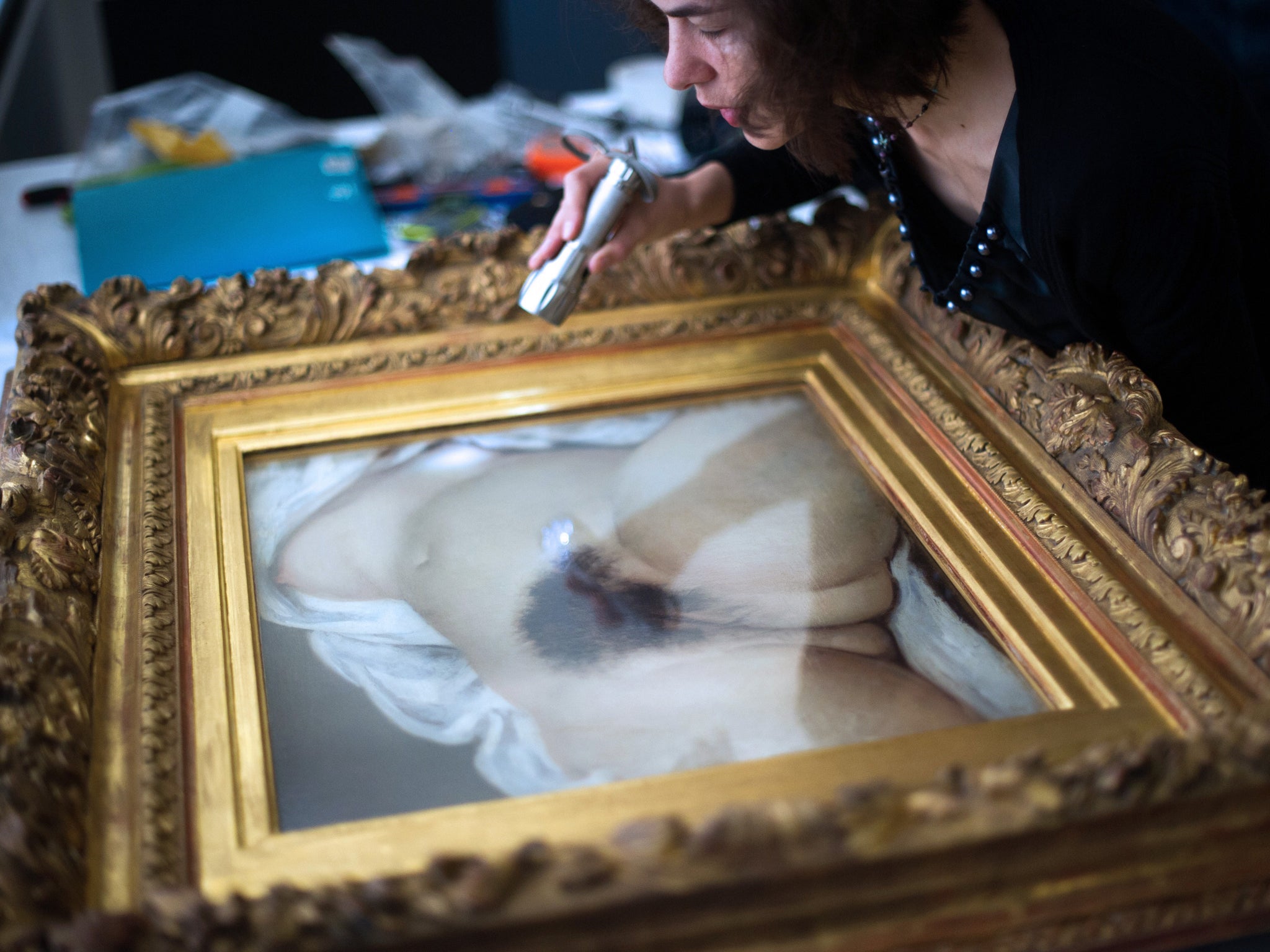France to Facebook: we'll decide what counts as porn on social networks
Dispute centres around an 1886 painting showing a naked woman lying down

Your support helps us to tell the story
From reproductive rights to climate change to Big Tech, The Independent is on the ground when the story is developing. Whether it's investigating the financials of Elon Musk's pro-Trump PAC or producing our latest documentary, 'The A Word', which shines a light on the American women fighting for reproductive rights, we know how important it is to parse out the facts from the messaging.
At such a critical moment in US history, we need reporters on the ground. Your donation allows us to keep sending journalists to speak to both sides of the story.
The Independent is trusted by Americans across the entire political spectrum. And unlike many other quality news outlets, we choose not to lock Americans out of our reporting and analysis with paywalls. We believe quality journalism should be available to everyone, paid for by those who can afford it.
Your support makes all the difference.France is locked in a legal dispute with Facebook over who gets to decide whether users can post pictures of a woman’s genitals on the social network.
The dispute centres around a teacher and father of three, Frédéric Durand-Baissas, who posted an 1886 painting called L'Origine du Monde ('the origin of the world') to the site. Facebook decided that the Gustave Courbet picture, which hangs in Paris’s Musée D'Orsay, was too offensive — taking it down and blocking Durand-Baissas.
The country has decided that French courts can hold a hearing about whether he should be banned from the service. It marks a huge precedent for Facebook — which claims that its terms of service mean that complaints can only be heard in California courts.

In January, Facebook’s lawyers argued that Durand-Baissas’s complaint about the case couldn’t be heard in France. But the country’s high court said that the terms were “abusive” and that the case should be heard in France after all.
The case could mark a an important precedent not just for Facebook but for other US tech companies, who tend to see their social networks and other services as being based in and therefore overseen by the US.
The teacher will now seek €20,000 in damages, according to newspaper Le Figaro, and his lawyer heralded the case as a victory “by David against Goliath”.
As the Telegraph reported, the decision comes in the context of new scrutiny by French governments of the ways hate speech is spread on social media. In the wake of the Paris shootings and other recent attacks, the French government has explored ways of censoring or monitoring online communications.
Join our commenting forum
Join thought-provoking conversations, follow other Independent readers and see their replies
Comments